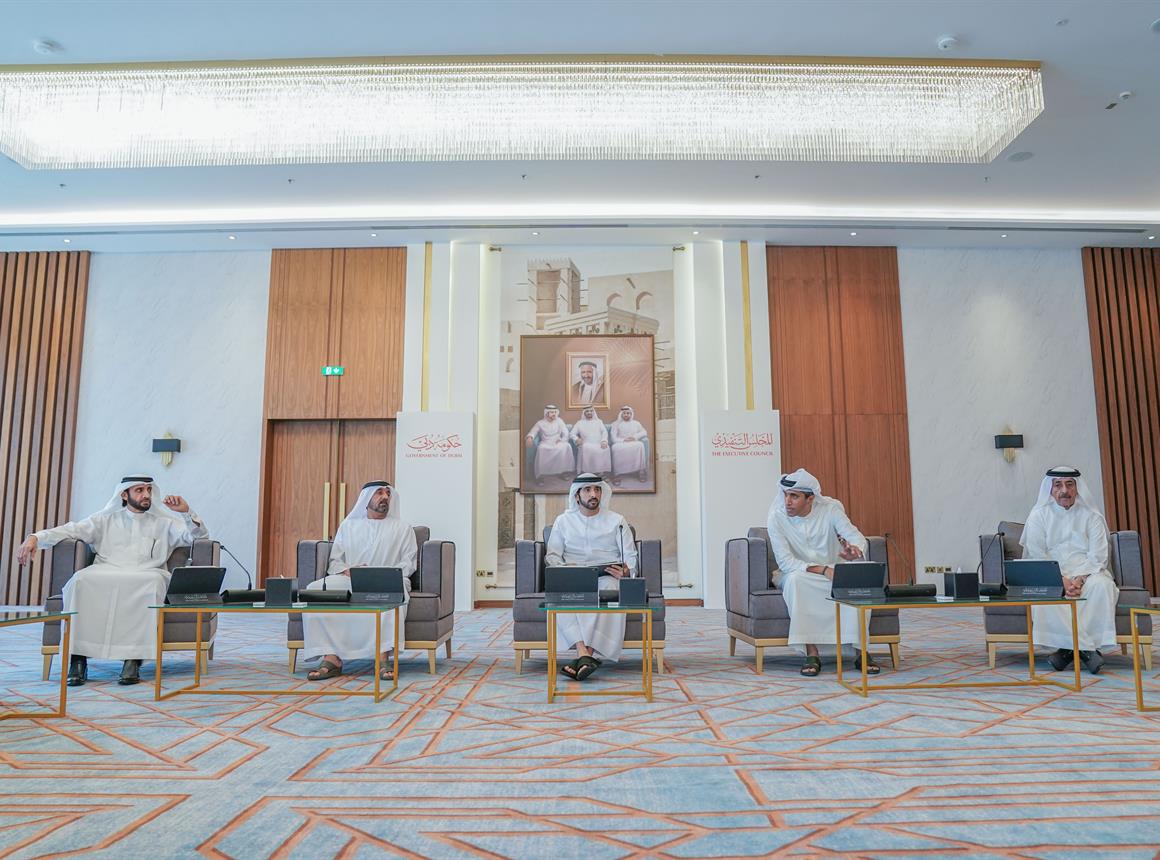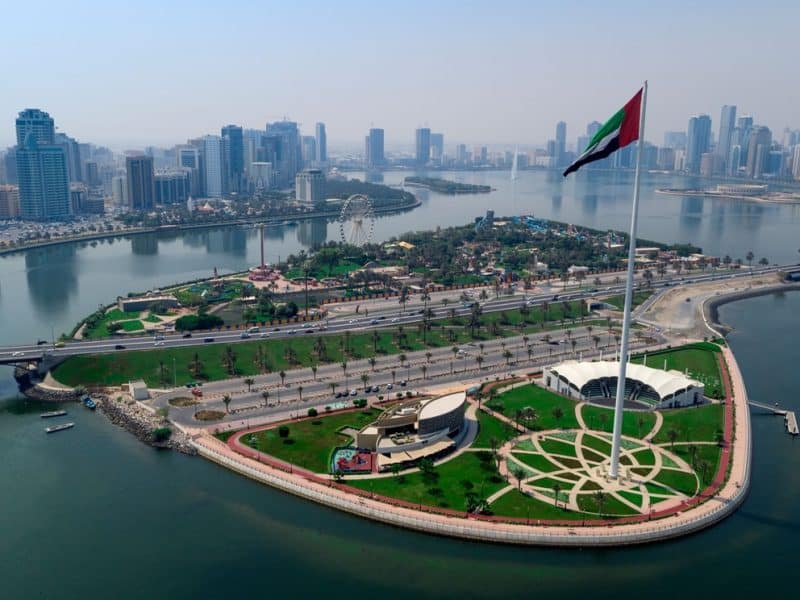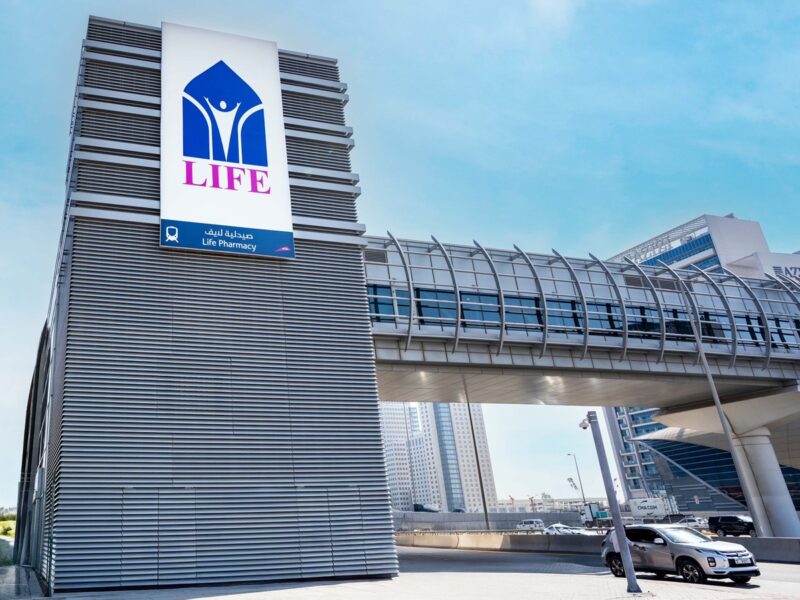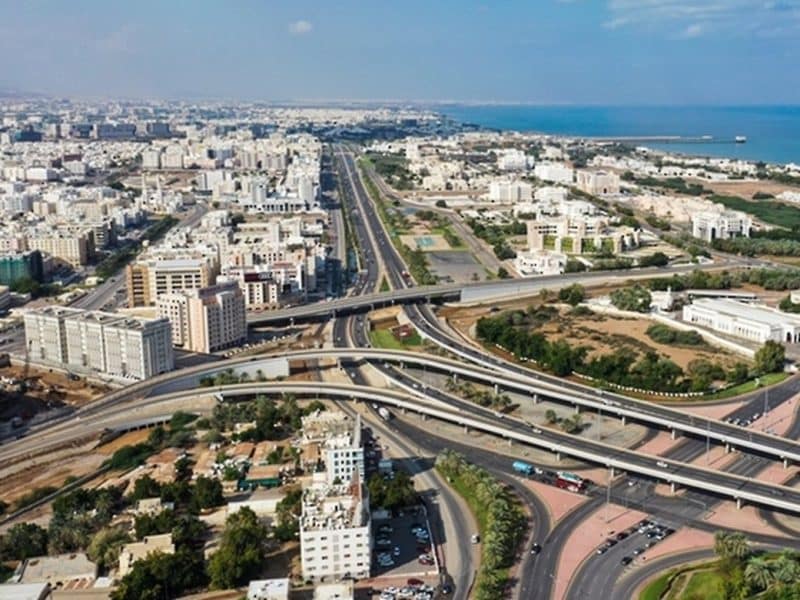The UAE has introduced a number of new policies to help startup owners and entrepreneurs in the region secure funding and attract the right talent and support.
Most recently, Sheikh Hamdan bin Mohammed bin Rashid Al Maktoum, the Crown Prince of Dubai and Chairman of Dubai’s Executive Council, approved the launch of a $100.73 million (AED 370 million) Venture Capital Fund for Startups to bolster and sustain startup projects and entrepreneurs in the emirate.
This initiative was announced within a week of the ”Hatta Traders Council” being established to support young businessmen and entrepreneurs in Hatta.
Bolstering the UAE’s position as an ideal destination to live, work, and invest, the UAE Cabinet also revealed a sweeping set of executive regulations making it easier for startup owners, investors, and entrepreneurs to obtain long-term visas.
The amendments to the 10-year Golden Visa programme, the five-year Green Residency visa, and a set of new UAE entry permits have boosted interest in a thriving startup ecosystem.
As a result of these initiatives, among others, the UAE has ranked third on a global index for digital nomads and long-term remote workers.
Here is everything you need to know about the 10 most recent developments in the UAE startup scene that make it easier for startups to secure funding, talent and more:
Table of contents –
- Dubai Crown Prince launches $100 million venture capital fund to bolster startups and entrepreneurs
- Emirates Development Bank launches $27.2 million post-Covid accelerator to support UAE SMEs
- Venture Capital firm Shorooq Partners launches $150 million seed stage fund for fintech, software, and digital asset startups
- Emirates Development Bank adds $520 million UAE’s GDP growth, finances 1,350 SMEs across priority sectors
- Dubai Crown Prince establishes Hatta Traders Council to support young entrepreneurs
- Explained: How startup owners and entrepreneurs can obtain a UAE Golden Visa under the new rules
- Future unicorns born and bred in the UAE will trace their roots back to the Golden Visa: expert
- Dubai Next – the digital crowdfunding platform has attracted a number of innovators and has already enabled eight startup concepts to raise the required funds.
- How new UAE labour law, talent visa are solving start-ups’ talent problem
- Why the UAE will remain the best country for startups and entrepreneurs in the years to come
1. Dubai Crown Prince launches $100 million venture capital fund to bolster startups and entrepreneurs

Sheikh Hamdan bin Mohammed bin Rashid Al Maktoum, the Crown Prince of Dubai and Chairman of Dubai Executive Council, has approved the launch of a $100.73 million (AED 370 milion) Venture Capital Fund for Startups to bolster and sustain startup projects and entrepreneurs in the emirate.
Governed by the Dubai International Financial Centre (DIFC), which is also a 15 percent contributor to the fund, the Venture Capital Fund for Startups will create an integrated funding system with a number of suitable options that can cater to the needs of enterprises.
The fund will provide $100.73 million (AED 370 million) in capital to finance small to medium startup projects, supporting their development in Dubai and gradual expansion to global markets.
Sheikh Hamdan bin Mohammed said: “We approved the launch of the ‘Venture Capital Fund for Startups’ today under the directives of Sheikh Mohammed bin Rashid Al Maktoum, the Vice President and Prime Minister of the UAE and Ruler of Dubai, to spearhead economic diversification and ignite sustainable economic growth. We are committed to create a vibrant business environment and provide the opportunities to promote excellence.”
The fund is set to contribute around AED 3 billion to the emirate’s GDP during the implementation period. It fund will come into effect starting June 2022. and will run for eight years, extendable for two additional years.
It will also provide more than 8,000 jobs for emerging talents, thus strengthening Dubai’s position as a regional centre for entrepreneurship and financial technology (fintech), innovation, and venture capital, and ensuring that it attracts investors and entrepreneurs from around the world.
The launch of the venture capital fund was approved during a meeting of the Executive Council.
Chairing the meeting, Sheikh Hamdan bin Mohammed added: “With a flexible legislative system, robust financing tools, an effective regulatory environment, and most importantly, dynamic public and private sectors, Dubai has established itself as the city of entrepreneurs and risk-tolerant investors.
“Dubai has been able to attract the best talent and investors from around the world to forge partnerships and mutually benefit from the tremendous opportunities offered. In short, Dubai nurtures bold ambitions.”
2. Emirates Development Bank launches $27.2 million post-Covid accelerator to support UAE SMEs
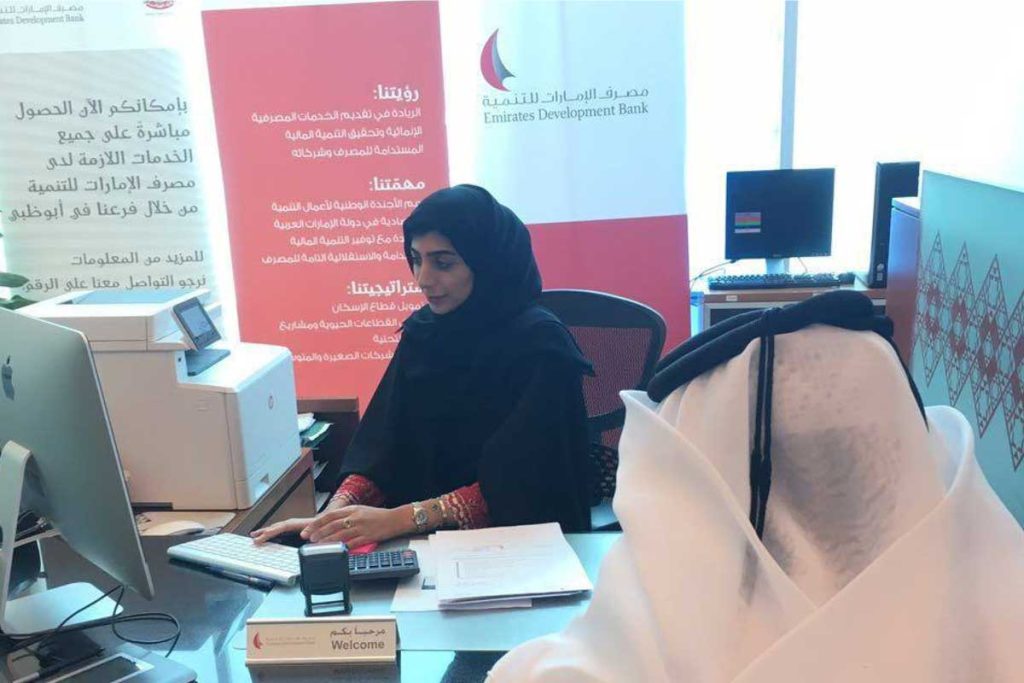
The Emirates Development Bank (EDB) – a key financial engine of the UAE’s economic diversification and industrial transformation agenda – has launched ‘Sanad’, a post-Covid acceleration initiative.
The new $27.2 million (AED 100 million) initiative aims to extend quick, easy-to-access, and flexible loans to Emirati-owned and managed businesses looking to accelerate the growth of their businesses post the Covid-19 pandemic.
The initiative is in line with the UAE’s National Strategy and series of initiatives to support the small and medium-sized enterprises (SMEs) in the UAE.
Announcing the initiative, the chief executive officer of EDB, Ahmed Mohamed Al Naqbi, said: “The launch of ‘Sanad’ is in line with the UAE’s leadership vision to boost the SME ecosystem and help the overall economic acceleration post-Covid.
“Our new AED 100 million initiative offers flexible liquidity support to Emirati-owned and managed SMEs with a growth outlook post the pandemic.”
Apart from the quick, convenient, and flexible platform, EDB is also offering interest rates that are among the most competitive lending rates in the market in both secured and unsecured loan categories.
The loans, to be offered at a starting rate of 5.99 percent per annum on reducing balance basis, seeks to enable Emirati businesses looking to accelerate their economic growth post-Covid.
Al Naqbi said: “Our new ‘Sanad’ initiative is in line with the country’s economic diversification strategy and part of the bank’s efforts to drive industrial growth and modernisation in the country in the next 50 years and beyond.
“EDB is the only bank in the UAE to provide such first-of-its-kind quick, easy-to-access, and flexible liquidity support to Emirati-owned and managed SMEs post-Covid.
He added: Moreover, we have designed a suite of expert financial services to enable Emirati owned and managed businesses accelerate their growth post the pandemic.”
EDB stated that the loan requests will be processed within five working days through a hassle-free process making the new initiative a quick, convenient, and flexible platform. The credit assessment of the SMEs will be based primarily on their 2019 financials (pre-Covid) with relaxed norms on evaluation of 2020-2021 financial performance.
On March 16, the UAE Ministry of Economy has revealed a new vision for the National Programme for Small and Medium Enterprises (SMEs) aimed at providing entrepreneurs and owners of SMEs in the UAE with more growth opportunities and enhanced market access.
The UAE Minister of State for Entrepreneurship and SMEs, Dr Ahmad Belhoul Al Falasi, has launched three new programmes and a set of initiatives under a new platform presented by the National Programme.
These programmes include the Government Procurement Programme, the Business Support Programme, and the Financing Solutions Programme.
3. Venture Capital firm Shorooq Partners launches $150 million seed stage fund for fintech, software, and digital asset startups

Leading early-stage venture capital firm Shorooq Partners has launched the second edition of its seed stage-focused fund, Bedaya Fund II, targeting a fund size of $150 million to aid innovative startups across the MENAP region.
Bedaya Fund II is a continuation of the same strategy that Shorooq Partners has been executing since its inception.
The firm is now doubling down on the earliest stages of the startup founders’ journey in alignment with its fundamental principles of acting as founders’ partners, company builders, and value investors.
As was the case for the predecessor fund, Bedaya Fund II will primarily focus on the pre-seed, seed, pre-series A, and series A stage startups in fintech, software, platform verticals, and digital assets.
Shorooq Partners has also recently been making strides as the first mover in the MENAP region through its Web 3.0 thesis.
The firm recently led the pre-seed round of Nuqtah, the first NFT born out of Saudi Arabia, and will continue to concentrate on the burgeoning Middle East, North Africa, and Pakistan region, where most of its companies have headquartered their respective operations.
“We have always been early movers, be that robo-advisory, crowdfunding, SME lending, open banking, card issuer processing, and so forth. We believe Web 3.0 models like DeFi, NFT, Metaverse are going to be the key players in the next iteration of online business,” said Shane Shin, a founding partner at Shorooq Partners.
“Shorooq Partners has been preparing for this new wave of technology disruption, and we are well-positioned to back the upcoming category leaders of Web 3.0 in our region.”
Shorooq Partners startup investments
With the Bedaya Fund II having already begun deployment, announcements of the first investments will soon be made public. The fund currently boasts an exceptionally strong list of investors from the world’s top-tier sovereign wealth funds, corporates, institutions, and family offices.
The newest investor groups include DisruptAD – ADQ’s venture platform, Dubai Future District Fund, Bupa Insurance, and others.
The firm has made over 80 investments in over 50 companies that currently have a gross equity value of $1.5 billion.
These companies have created more than 5,000 jobs, and include names such as Pure Harvest Smart Farms, TruKKer, Capiter, Lean Technologies, Sarwa, Lendo, NymCard, Breadfast, Airlift, Mozn, Aumet, and more.
Shorooq Partners has rapidly expanded over the past five years. The firm is trusted and its funds are backed by seven sovereign wealth funds and has established a strong physical foothold in six countries with on-ground proprietary deal sourcing capabilities.
In 2021, Shorooq Partners announced the first Middle East-focused venture debt fund series Nahda Fund and has been actively supporting some of the leading companies in the region, namely Pure Harvest Smart Farms and Retailo Technologies.
The firm has relied on its investors and its team to support portfolio companies with a strong on-ground presence made possible by its network of physical offices.
The continuous increase in interest from regional and international institutional investors to explore merger and acquisition opportunities in the region and to tap into emerging market startups as a path of differentiation and a mechanism to generate higher returns is creating a stronger market for exits.
“Merely a few years ago, Shane and I started Shorooq Partners from humble beginnings, bootstrapping our first investments with only our close friends and families committing to it,” said Mahmoud Adi, a founding partner at Shorooq Partners.
“Now with six offices across our core markets and a large team, we are humbled and privileged to be a market maker in the region’s accelerating startup ecosystem. We are proud to take on this mission to support founders who deserve only the best kinds of investors that can provide them with inflection points.”
4. Emirates Development Bank adds $520 million UAE’s GDP growth, finances 1,350 SMEs across priority sectors

The Emirates Development Bank (EDB), which is a key financial enabler of the UAE’s economic diversification and industrial transformation agenda, has revealed record growth over the past 12 months.
The results of the past year were presented at the first EDB Board meeting of 2022, underlining the success of the bank’s new strategy, which was launched in March 2021 to support UAE’s industrial development, accelerate the adoption of advanced technologies, and empower the growth of SMEs in the UAE.
The chief executive officer of EDB, Ahmed Mohamed Al Naqbi, presented EDB’s year-one performance and key achievements to the board, which included a $520 million (AED1.91 billion) contribution to the UAE’s GDP growth, as well as direct and indirect financing of 1,350 SMEs across priority sectors.
EDB’s launch of a new credit guarantee platform was able to mobilise more than $90.38 million (AED332 million) of capital to SMEs.
This will be achieved through the growth and development of large corporations and SMEs in five key sectors: manufacturing, advanced technology, infrastructure, healthcare, and food security.
As part of its strategy, EDB will also facilitate direct and indirect lending totaling $8.16 billion (AED30 billion) by 2025, which is expected to support more than 13,500 companies.
Other key achievements of the Emirates Development Bank include the launch of a large corporate banking division in less than a year and a digital banking application focused on SMEs and start-ups. In its first 6 months, more than 1,000 digital banking accounts have been registered.
The board meeting was attended by Dr Sultan Ahmed Al Jaber, the chairman of the EDB board and Minister of Industry and Advanced Technology; Dr Ahmad Belhoul Al Falasi, the EDB deputy chairman and Minister of State for Entrepreneurship and SMEs; Younis Haji Khoury, the undersecretary of the Ministry of Finance; Mohammed Saif Al Suwaidi, the director-general of the Abu Dhabi Fund for Development (ADFD) and chairman of the Exports Executive Committee of the Abu Dhabi Exports Office (ADEX); Abdul Wahed, Mohammad Al Fahim, the chairman of NASDAQ Dubai; Mariam Saeed Ghobash, the board member of EDB; Khalfan Jumaa Belhoul, the CEO of the Dubai Future Foundation; Najla Ahmed Al Midfa, the CEO of the Sharjah Entrepreneurship Centre; Ahmed Al Kuttab, the director of the Executive Office Directorate at ADNOC Group; and Yousef Yaqoob Almansoori, the principal legal researcher at Dubai Police.
Dr Sultan Ahmed Al Jaber, the Minister of Industry and Advanced Technology and the chairman of EDB, said: “Over the years, the UAE has achieved significant growth and progress across various sectors that are now actively contributing to the nation’s GDP growth.
“Through the Emirates Development Bank and its new strategy, we aim to ensure that the industrial sector keeps pace with that growth and achieves the aspirations of the UAE leadership. The Emirates Development Bank plays a critical role in realising these aspirations by providing the necessary financial and non-financial support to SMEs and large corporations in key industrial sectors.”
Dr Al Jaber added: “In the first year under its new strategy, EDB was able to make a $520 million (AED1.91 billion) contribution to the UAE GDP, underlining its importance not just to the UAE’s industrial sector, but to the nation’s economic diversification, global competitiveness and long-term, sustainable economic growth.”
Dr Ahmad Belhoul Al Falasi said: “The past 12 months were pivotal for EDB in its financial and strategic milestones. Just a few highlights include the financing of $413.8 million (AED1.52 billion) to projects in priority sectors and establishing partnerships with nine commercial banks, resulting in credit guarantees worth $90.38 million (AED332 million).
“EDB has also implemented a number of new strategies and projects that will maintain its momentum. Our goal now is to continue to enhance our role in accelerating growth of the economy in our five key sectors – manufacturing, technology, healthcare, food security and infrastructure.”
Over the past 12 months, to help accelerate its strategy and attract FDI into the UAE, EDB has signed memorandums of understanding with 26 partners, including banks, public and private sector entities, chambers of commerce and free zones.
In an effort to ensure proactive stakeholder outreach, EDB has also conducted more than 16 roadshows and industry events.
In order to ensure that its financing is focused towards businesses and projects that maximise economic impact for the UAE, EDB has created a customised, proprietary ‘development impact scorecard’, which has helped maximise the industrial development impact of the bank’s portfolio.
Commenting on EDB’s record 12-month performance, the CEO of EDB, Ahmed Mohamed Al Naqbi, said: “EDB is committed to creating a supportive environment for businesses to help build a more prosperous future for the UAE and cement the nation’s position as a destination where businesses can thrive.
“The growth achieved by EDB in the past year is a result of the unwavering support of the EDB Board and testament to the strategy that was approved 12 months ago.”
Al Naqbi added: “We will continue to drive forward our efforts to support priority sectors and increase our value-added financing support for projects in technology, healthcare, food security, manufacturing and infrastructure as we look to the year ahead.”
5. Dubai Crown Prince establishes Hatta Traders Council to support young entrepreneurs

Sheikh Hamdan bin Mohammed bin Rashid Al Maktoum, the Crown Prince of Dubai and Chairman of The Executive Council of Dubai, has approved the formation of the ”Hatta Traders Council” to support the implementation of the Hatta Master Development Plan.
The Hatta Traders Council, which will fall under the umbrella of Dubai Chamber, will act as a platform to support young businessmen and entrepreneurs in Hatta, and will be the first of a series of initiatives that will be launched to support the ideas of Emirati youth and ensure the growth and success of their businesses.
“We are confident in the ability of Emirati entrepreneurs to innovate and develop unique business ideas and projects that will contribute to raising the emirate’s competitiveness globally,” Sheikh Hamdan said.
Sheikh Hamdan bin Mohammed said that under the directives of Sheikh Mohammed bin Rashid Al Maktoum, Dubai places the highest priority on supporting young Emirati entrepreneurs and empowering them to ensure their success.
The traders council will support the exchange of expertise and joint coordination and will work to maximise the benefits from new economic opportunities, the state-run news agency, Wam, reported.
The Hatta Master Development Plan forms an integral part of the Dubai 2040 Urban Master Plan launched by Sheikh Mohammed bin Rashid Al Maktoum, the Vice President and Prime Minister of the UAE and Ruler of Dubai.
“The emirate places its citizens at the heart of its development plans and considers them partners in achieving its goals,” Sheikh Hamdan added.
“UAE citizens are capable of leading the city’s comprehensive development, and will play a key role in supporting the emirate’s economy in the next 50 years,” Sheikh Hamdan said.
Sheikh Hamdan approved the formation of the council under the chairmanship of Mana Ahmed Al Kaabi.
Members of the council include: Ahmed Mohammed Al Hashemi, Khalifa Ali Al Bedwawi, Bakheet Mohammed Al Meqbali, Majid Khalfan Al Bedwawi, Khalifa Saeed Al Mutaiwei, Mohammed Khalifa Al Kaabi, Khaled Abdullah Al Bedwawi, and Khaled Ali Al Bedwawi.
The council is set to play a key role in supporting young entrepreneurs who own small and medium businesses, by empowering and enabling them to implement projects and creative ideas to advance sustainable economic development in the Hatta area and the emirate of Dubai.
6. Explained: How startup owners and entrepreneurs can obtain a UAE Golden Visa under the new rules

Entrepreneurs and startup owners in the UAE will be able to more easily obtain the UAE Golden Residence visa – a long-term 10-year UAE residency visa – under the set of new executive regulations revealed by the UAE Cabinet.
The UAE Cabinet, headed by Sheikh Mohammed bin Rashid Al Maktoum, the Vice President, Prime Minister and Ruler of Dubai, approved the executive regulations of the Federal Decree-Law on Entry and Residence of Foreigners to strengthening the UAE’s position as an ideal destination to live, work, and invest.
The executive regulations set flexible requirements for entrepreneurs and startup owners to obtain the Golden Visa, the state-run news agency, Wam, reported.
UAE Golden Visa eligibility criteria
– Entrepreneurs should own or be a partner in a startup registered in the UAE under the small and medium enterprises (SMEs) category, and the registered startup must generate annual revenues of not less than $272,250 (AED 1 million).
– Entrepreneurs or startup owners who obtain approval for a startup idea from an official business incubator, from the Ministry of Economy, or from a competent local authority will be deemed eligible to obtain the Golden Residence in this category.
– Entrepreneurs who are founders – or one of the founders – of a previous entrepreneurial project(s) that was sold for a total of not less than $1.9 million (AED 7 million) will be entitled to the UAE Golden visa. For this category, the approval of the Ministry of Economy or competent local authorities will be required for projects or ideas.
UAE Green Residence eligibility criteria
The UAE Green Residence visa permit for investors and partners has been introduced to encourage investments in the UAE.
Unlike the 10-year Golden Visa, the Green Residence permit provides five-year residency for investors establishing or participating in commercial activities.
It replaces the previous residence that was valid for 2 years only.
Requirements include approval of the investment and proof of investment. If the investor or partner has more than one licence, the total invested capital will be calculated.
Approval of the competent local authorities is mandatory for the UAE Green Residence permit to be issued.
7. Future unicorns born and bred in the UAE will trace their roots back to the Golden Visa: expert

Recently revealed amendments to the Golden Visa programme and the long-term UAE residence visas and entry permits will “have a positive ripple effect on the economy,” an expert said.
On Monday, 18 April the UAE Cabinet announced a sweeping set of executive regulations that opened up the Golden Visas to more categories of professionals and skilled workers, and made the eligibility criteria a lot simpler.
“Most importantly, the visa reforms allow the UAE to attract the brightest and the best from the region and beyond. The aggregate gain of that in years to come will be invaluable,” Trevor McFarlane, the CEO of Emerging Markets Intelligence & Research (EMIR), said.
“As future unicorns are born and bred in the UAE, their roots will be traced to initiatives like the golden visa,” he added.
Entrepreneurs and startup owners in the UAE will be able to more easily obtain the UAE Golden Residence visa – a long-term 10-year UAE residency visa – under the set of new executive regulations revealed by the UAE Cabinet.
The new eligibility criteria for Golden Visa offer more flexible options for start-up owners and entrepreneurs to apply:
– Entrepreneurs should own or be a partner in a startup registered in the UAE under the small and medium enterprises (SMEs) category, and the registered startup must generate annual revenues of not less than $272,250 (AED 1 million).
– Entrepreneurs or startup owners who obtain approval for a startup idea from an official business incubator, from the Ministry of Economy, or from a competent local authority will be deemed eligible to obtain the Golden Residence in this category.
– Entrepreneurs who are founders – or one of the founders – of a previous entrepreneurial project(s) that was sold for a total of not less than $1.9 million (AED 7 million) will be entitled to the UAE Golden visa. For this category, the approval of the Ministry of Economy or competent local authorities will be required for projects or ideas.
McFarlane added: “Visa reforms, including the golden visa for startups, will help the UAE meet strategic goals, such as increasing the contribution of the digital economy to the UAE’s GDP from 9.7 percent to 19.4 percent within the next 10 years.”
The reforms, which were necessary for the UAE to achieve its goal of becoming a brain port for top talent, have been received very well be residents, visitors, and expat investors.
“Given that I run a network for regional CEOs, the government approached us early last year to offer certain CEOs Golden Visas. Having helped hundreds of our members gain the visa, I can safely say that these policies are very well received and will help retain some of the country’s most high achieving individuals in the UAE for years to come,” McFarlane concluded.
8. Dubai Next – the digital crowdfunding platform has attracted a number of innovators and has already enabled eight startup concepts to raise the required funds

The crowdfunding platform is now anticipating an increase in fund-seekers and contributors following the UAE’s approval of a federal system for such platforms.
The CEO of Dubai SME, Abdul Baset Al Janahi, said: “Crowdfunding has had a significant impact in ushering in a new generation of entrepreneurs in the UAE. It provides an alternate financing option, and an ideal opportunity to turn startup ideas into viable projects.
“Students aged 12 and above can create campaigns on Dubai Next and the campaigns seen so far are diverse and innovative”
Sheikh Mohammed bin Rashid Al Maktoum, the Vice President, Prime Minister and Ruler of Dubai, recently announced a new federal framework that will allow operators from the government and private sectors to back crowdfunded projects.
Following the announcement of the framework, Dubai Next – which is managed by the Dubai SME, an agency of the Department of Economy and Tourism (DET) in Dubai – is looking to increase the number of contributors, which is currently at 398, and the number of approved and running campaigns, which is at 62.
The total number of campaigns registered till date is 1,570. Between the first three months and April 2022, the campaigns have increased by 50 percent, while contributors have increased by 60 percent, the state-run news agency, Wam, confirmed.
Crowdfunding involves small amounts sourced towards financing of a single commercial venture.
Anyone with an innovative idea or project can create a campaign on Dubai Next and seek funds from contributors. The not-for-profit platform is open to people of all nationalities.
Al Janahi added: “The Dubai Next experience confirms that crowdfunding can motivate our growing youth population to pursue entrepreneurship, thus ushering in a new generation of entrepreneurs and eventually positioning Dubai as the global hub of innovative enterprise.
“With the federal legislation in place and the Securities and Commodities Authority being responsible for regulating the activities of crowdfunding, the crowdfunding platforms will see increased transparency, competitiveness and demand from the growing community of local, regional and global innovators in the UAE. It will create a sustainable pipeline of creative startups in the UAE.”
The deputy CEO of Dubai SME, Saeed Matar Al Marri, said: “Crowdfunding provides access to funding for a large segment of the society, particularly the younger generation, and facilitates financing amongst entrepreneurs and their family as well as friends and the wider community.
“Ideas submitted on Dubai Next go through a viability testing before it moves to the funding stage, thus minimising future risks. Campaign owners are also supported by Dubai SME in marketing their idea among the target contributor groups.”
9. How new UAE labour law, talent visa are solving start-ups’ talent problem

The UAE’s new labour law, the introduction of DAFZA’s Talent Pass licence in January – and the freelance visa last September helped in solving start-ups’ problem of access to skilled employees and gave founders the flexibility to innovate without the fear of failing.
All these factors are slowly leading to more mergers and acquisitions (M&As) and consolidations within the country’s start-up ecosystem, explained Noor Sweid, founder & general partner of Global Ventures, calling it a “proud moment”.
“The new labour law and the visa changes have made talents much more flexible which is very important when you’re building a company where your first year is very different to your third year and you need a different set of talent as some people grow with you and others don’t. So that ability to recruit a variety of people and to try and fail is very, very important and helps us solve the talent problem,” said Sweid.
“For a lot of entrepreneurs, the lack of access to capital and talent was an issue and so those recent changes have addressed the talent problem in the market,” she added.
All businesses generally benefit from the freelance visa, talent pass and flexible contracts outlined in the new labour law in that the commitments that come with a full-term contract are no longer an issue.
“The ability to hire people, if they’re on a consulting license or an entrepreneur visa, and try them out for six months or so on is incredible for start-ups and even for us as a start-up VC,” said Sweid.
“We follow the six-month probation and before [the visa changes], you had to deal with getting someone the work visa and residency papers and with the cost of on boarding them so you were making this big commitment and then, if it doesn’t work out, you debate between not wanting to let them go and being stuck with someone who might not be a good fit,” she continued.
Sweid also mentioned the amendments to the Commercial Companies Law, allowing foreign investors and entrepreneurs to establish and fully own onshore companies, introduced last year calling it “huge” and explaining that “it allows people to come in and just brainstorm and start companies here and if one doesn’t work, they start another one whereas before it was very difficult to change from one company to another.”
Another area where the start-up ecosystem in the UAE is very helpful is the regulator.
“The UAE is very regulation-forward where the regulator wants to work with founders, looking at what they are trying to build and how they can support. We’ve seen that in FinTech, with ADGM and the DIFC FinTech Hive, and with blockchain land. There is a desire to regulate in a founder-friendly way,” said Sweid.
More M&As and consolidations for start-ups in 2022 and 2023
Being nascent in its entrepreneurial journey, start-up founders in the UAE were attached to their company and its outcome believing it was their only chance to do something meaningful but this is changing, said Sweid.
“Now there’s enough conviction in the system that if you’re a second-time founder, those first two years are actually so much easier. You can raise money, hire talents and get conviction more easily,” explained Sweid.
“Founders have realised that they don’t have to run this horse until it dies but can exit at a $50 million valuation, for example, and build another company they’re passionate about without having to go through the same kind of mental damage and stress they did the first time, and so you have a lot more founder-conviction that M&A might be the right thing for them, even if it’s a small one,” she continued.
Sweid expects to see more of those M&As as the ecosystem evolves and said it is “definitely a sign of the ecosystem’s evolution and maturity.”
“I think we are going to see a lot more consolidations where 2022 and 2023 become consolidation-years across different sectors from fintech to food; all the sectors that have been blooming over the last few years will be consolidating in the next couple years,” she said.
Asked about what Global Ventures is excited about investing in 2022, Sweid said they’ve invested in five Web3 companies last quarter.
“It is exciting in terms of the democratisation of access to income and the ability for people that have a lot of creative or cognitive talents, such as those who are good or art, to have a platform which we saw very basically with art NFTs,” said Sweid.
“We just invested in a company in Pakistan that effectively takes your skills as a teacher and puts them onto a platform where as people consume this content, you earn – versus YouTube where you have to get a sponsor or paid advertisement and people have to subscribe. With Web3, what you enable is almost a pay as you go platform, which in great in emerging markets where people can only pay for what they need, not all these massive subscriptions. So we’re seeing democratisation of education through Web3,” she continued.
10. Why the UAE will remain the best country for startups and entrepreneurs in the years to come

The UAE has been ranked first globally as the best ecosystem for startups and entrepreneurs in 2022, ahead of the Netherlands, Finland, Saudi Arabia, and Lithuania, according to the Global Entrepreneurship Monitor’s (GEM) 2022 report, and experts have emphasised that the ranking is well deserved.
The GEM report captures the perspectives of more than 2,000 relevant experts – at a minimum of 36 per country – across the 50 participating nations, to rank them in terms of their ability to encourage startups.
“During the last 20 years, the UAE has seen a dedicated drive to cultivate a globally competitive business ecosystem attracting entrepreneurs and investors, which are essential components to support economic diversification and innovation,” Majed Al Suwaidi, the managing director of Dubai Media City, said on behalf of in5, TECOM Group’s enabling platform for entrepreneurs in tech, design, and media.
“Government-led strategies and enabling policies have enriched the landscape of opportunities available here across diverse industries, and the support of business incubators like in5 play a pivotal role in earning the UAE its leading position in this year’s Global Entrepreneurship Monitor report.”
The UAE attained the highest score of 6.8 on GEM’s National Entrepreneurship Context Index (NECI), making it the best country in the world for startups.
Responding to the ranking, the CEO and co-founder of Starzplay Arabia, Maaz Sheikh, said: “I’m not surprised.
“At Starzplay, we have experienced first-hand the supportive local ecosystem that entrepreneurs can benefit from. This system has only grown stronger in the years since our launch in 2015. Factors such as advanced telecom infrastructure, business opportunities, and a strong regulatory framework helped the UAE achieve a high score in all axes of the index, not to mention the success of Expo 2020 Dubai.”
The inspiring stories of other homegrown businesses such as Namshi.com, Anghami, and noon are also testament to the UAE’s status as a startup hub.
“I’m proud to be in their company and I look forward to seeing what the next generation of innovators has in store for the region, and the world,” Maaz Sheikh added.
Eddy Maroun, Co-Founder and CEO of Anghami, the first Arab tech company to list on the US Nasdaq Stock Market , said: “The UAE is the land of limitless opportunities for entrepreneurs, start-ups, as well as investors, and our partnership with Abu Dhabi Investment Office (ADIO) was the foundation stone for the company’s next phase of growth.
“We are glad to be part of Abu Dhabi Global Market which provided Anghami with financial and non-financial incentives to set up its historical listing on NASDAQ as the first Arab tech company.
“From the UAE, we will continue our mission to transform the music streaming and entertainment industry globally by connecting fans and artists and sharing their voice with the world.”
Fellow homegrown UAE success story Mohamad Ballout, CEO and co-founder of unicorn Kitopi, paid his tribute.
“Thanks to the UAE government’s ongoing efforts to promote entrepreneurship and innovation in the country, the UAE has one of the most attractive startup ecosystems today, with benefits ranging access to multiple funding channels, to conducive regulatory frameworks, to diverse talent pools and beyond.
“I can say without reservation that Kitopi’s growth has largely been made possible by the ecosystem we operate in, and the choice of setting up Kitopi in the UAE, over any other parts of the world, has been one of the best choices we have made for the business.”
Of the 35 countries that participated in the GEM’s National Entrepreneurship Context Index (NECI), one of the highest score increases were noted in Saudi Arabia (from 5.0 in 2019 to 6.1 in 2021) and the UAE (from 5.8 to 6.8).
Experts have stated that this growth is expected to continue, with the UAE expected to maintain its top ranking for startups in the years to come.
Al Suwaidi concluded: “Investors and VCs are tapping into the flourishing business community in the UAE, which is why we introduced a dedicated space for them to access our start-ups and reaffirm our country as a leading destination for business.
“There is no doubt our continued focus on the future and adapting our policies to changing demands will help us maintain our ranking in this list, and consolidate Dubai’s competitive economy.”




